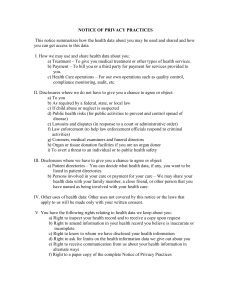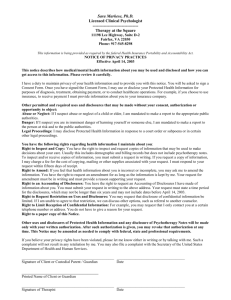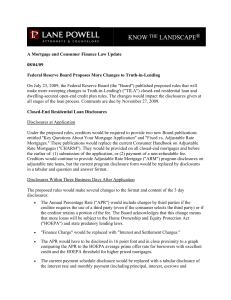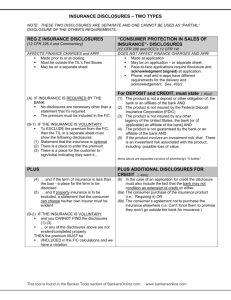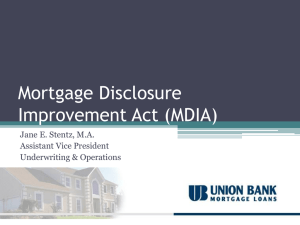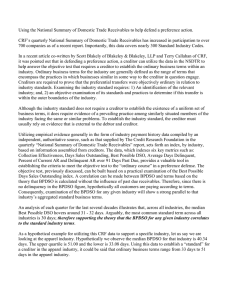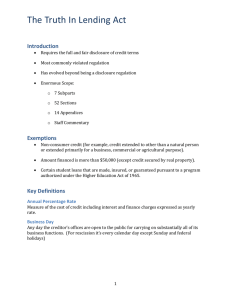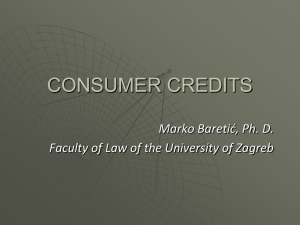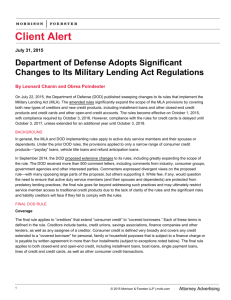G.S. 24-11.1 Page 1 § 24-11.1. Disclosure requirements for credit
advertisement
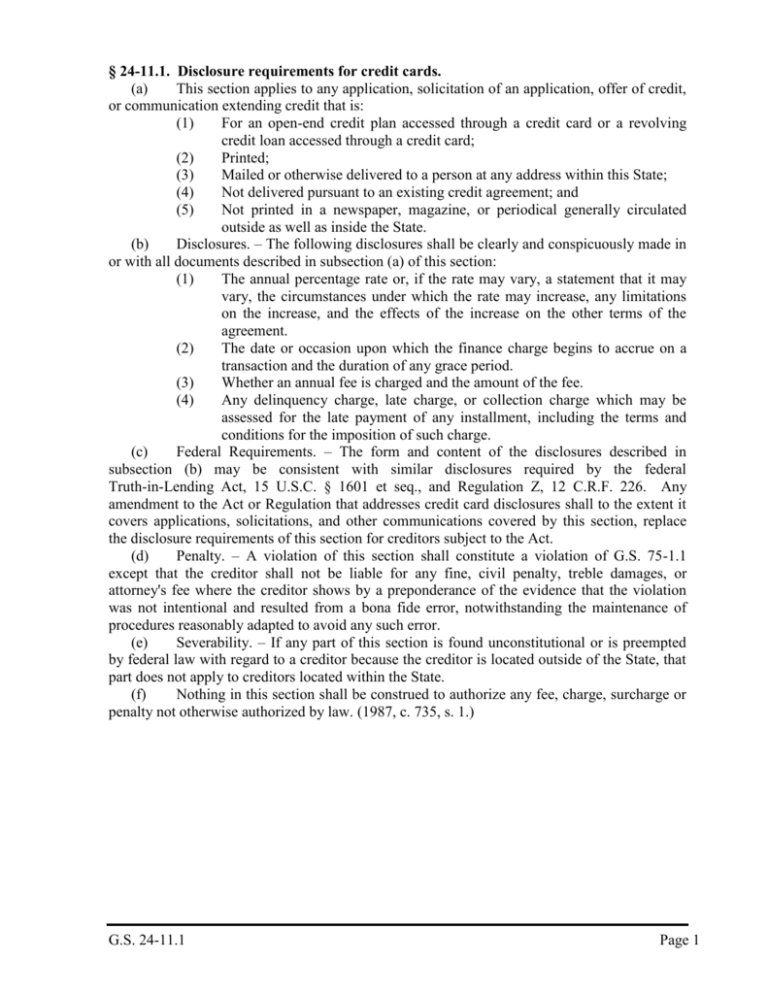
§ 24-11.1. Disclosure requirements for credit cards. (a) This section applies to any application, solicitation of an application, offer of credit, or communication extending credit that is: (1) For an open-end credit plan accessed through a credit card or a revolving credit loan accessed through a credit card; (2) Printed; (3) Mailed or otherwise delivered to a person at any address within this State; (4) Not delivered pursuant to an existing credit agreement; and (5) Not printed in a newspaper, magazine, or periodical generally circulated outside as well as inside the State. (b) Disclosures. – The following disclosures shall be clearly and conspicuously made in or with all documents described in subsection (a) of this section: (1) The annual percentage rate or, if the rate may vary, a statement that it may vary, the circumstances under which the rate may increase, any limitations on the increase, and the effects of the increase on the other terms of the agreement. (2) The date or occasion upon which the finance charge begins to accrue on a transaction and the duration of any grace period. (3) Whether an annual fee is charged and the amount of the fee. (4) Any delinquency charge, late charge, or collection charge which may be assessed for the late payment of any installment, including the terms and conditions for the imposition of such charge. (c) Federal Requirements. – The form and content of the disclosures described in subsection (b) may be consistent with similar disclosures required by the federal Truth-in-Lending Act, 15 U.S.C. § 1601 et seq., and Regulation Z, 12 C.R.F. 226. Any amendment to the Act or Regulation that addresses credit card disclosures shall to the extent it covers applications, solicitations, and other communications covered by this section, replace the disclosure requirements of this section for creditors subject to the Act. (d) Penalty. – A violation of this section shall constitute a violation of G.S. 75-1.1 except that the creditor shall not be liable for any fine, civil penalty, treble damages, or attorney's fee where the creditor shows by a preponderance of the evidence that the violation was not intentional and resulted from a bona fide error, notwithstanding the maintenance of procedures reasonably adapted to avoid any such error. (e) Severability. – If any part of this section is found unconstitutional or is preempted by federal law with regard to a creditor because the creditor is located outside of the State, that part does not apply to creditors located within the State. (f) Nothing in this section shall be construed to authorize any fee, charge, surcharge or penalty not otherwise authorized by law. (1987, c. 735, s. 1.) G.S. 24-11.1 Page 1


